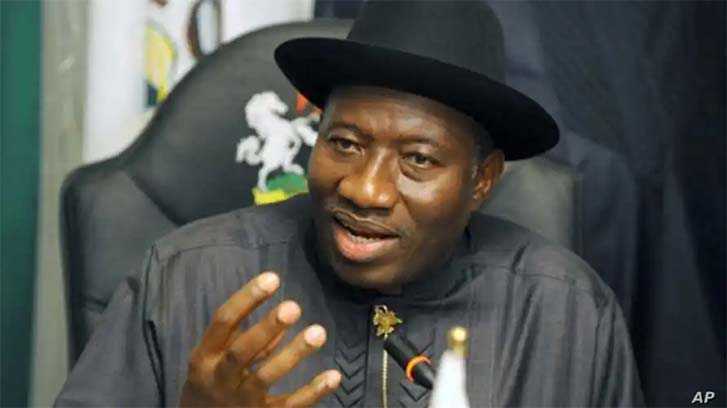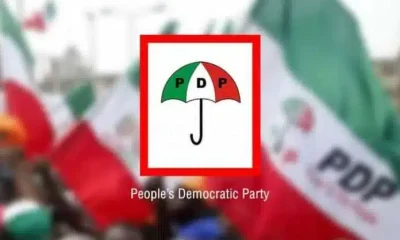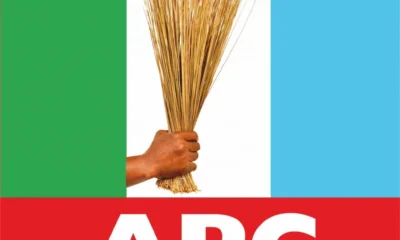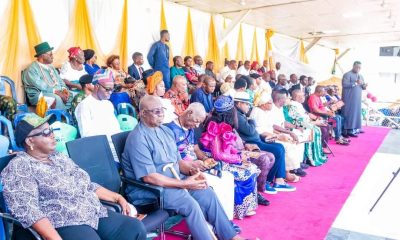National
Why Niger Delta Won’t Join Biafra – Jonathan
By Benjamin Abioye

Former Nigerian President Goodluck Jonathan has expressed his belief that people from the Niger Delta would not support joining a proposed Biafran nation due to concerns about marginalization and other challenges.
Speaking during a lecture in Texas, United States, Jonathan emphasized that Niger Deltans prefer remaining part of Nigeria over aligning with Biafra in splitting the country.
He explained his perspective by highlighting potential issues such as leadership dynamics, the location of the capital, language diversity, and the fear of forced annexation. Jonathan cautioned that joining Biafra could mean trading one form of domination for another. He pointed out that while the Igbos have expressed their desire to escape perceived marginalization by the Hausa and Yoruba, similar concerns would apply to Niger Deltans if Biafra were realized.
Jonathan remarked, “The argument made by the Igbos about Hausa-Yoruba domination also applies to the average Niger Deltan. If Biafra is actualized, Igbos will undoubtedly be the major ethnic group. While the Ijaws may have some influence due to their population, what about the Ogonis, Urhobos, Isokos, Itsekiris, Efiks, and others? Where would they fit in at the national level?”
He expressed skepticism about whether minorities in Biafra would fare better than they currently do in Nigeria. “In Nigeria, large ethnic groups like the Hausa, Yoruba, and Igbo keep each other’s excesses in check. Who will balance the influence of the Igbos in a new nation?” he asked.
Addressing the question of where the capital of Biafra would be located, Jonathan speculated, “If the capital is meant to be centrally located, it won’t be Enugu but somewhere around the Umuahia-Ikot Ekpene axis. Would the Igbos agree to have their capital outside an Igbo-dominated area? These unresolved issues foster distrust, which is why many non-Igbo regions reject the proposed map of Biafra and pledge loyalty to Nigeria.”
Jonathan further criticized actions and rhetoric from some pro-Biafran groups. “I’ve seen comments from e-Biafrans like ‘if you don’t like it, go and stay in Sokoto’ and ‘all land in the South is Biafraland.’ How can a group advocating for freedom seek to annex others forcibly? This creates mistrust,” he noted.
Language, he added, is another contentious issue. “What languages will be recognized as official in the new nation? I’ve seen proposals for Igbo as the official language. But what happens to other languages like Urhobo, Efik, Isoko, and others? Would these languages be sidelined? If English is chosen, the Igbo majority might still dominate, making it difficult for those with non-Igbo names to gain appointments or recognition.”
Jonathan questioned the efforts made by Igbo leaders to address mistrust among Niger Deltans. “I see Igbo youths creating unnecessary controversy online, insulting dissenters, and making unfounded claims. There is significant mistrust towards Igbos among Niger Deltans, especially the Urhobo-Isoko and Bini communities. What efforts have been made by Igbo leaders to bridge this divide?”
He observed that many Niger Deltans would rather align with other groups than accept domination in Biafra. “Most Niger Deltans would rather follow Hausas as subordinates than Igbos as leaders. This is the hard truth, and Igbos must address the causes of this sentiment.”
Lastly, Jonathan raised concerns about leadership in a potential Biafran nation. “Who will lead this new nation? Nnamdi Kanu, their key figure, is currently imprisoned. If Biafra is established today, who becomes the interim leader, and what system will be in place for electing future leaders? It is unlikely that those who fought for Biafra will allow someone uninvolved in the struggle to take power. This creates another barrier to establishing a true democracy in Biafra,” he concluded.
Send Us A Press Statement Advertise With Us Contact Us
And For More Nigerian News Visit GWG.NG













